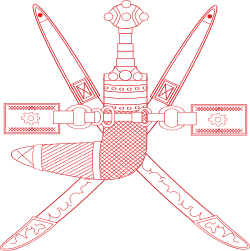| | |||||||||||||||
| |||||||||||||||
All 83 seats in the Consultative Assembly | |||||||||||||||
This lists parties that won seats. See the complete results below.
| |||||||||||||||
 |
|---|
|
| Cabinet |
General elections were held in Oman on 4 October 2003 for the mainly advisory Consultative Assembly. [1] They were the first elections in Oman under universal suffrage. As political parties were banned, all candidates for the 83 seats ran as independents.